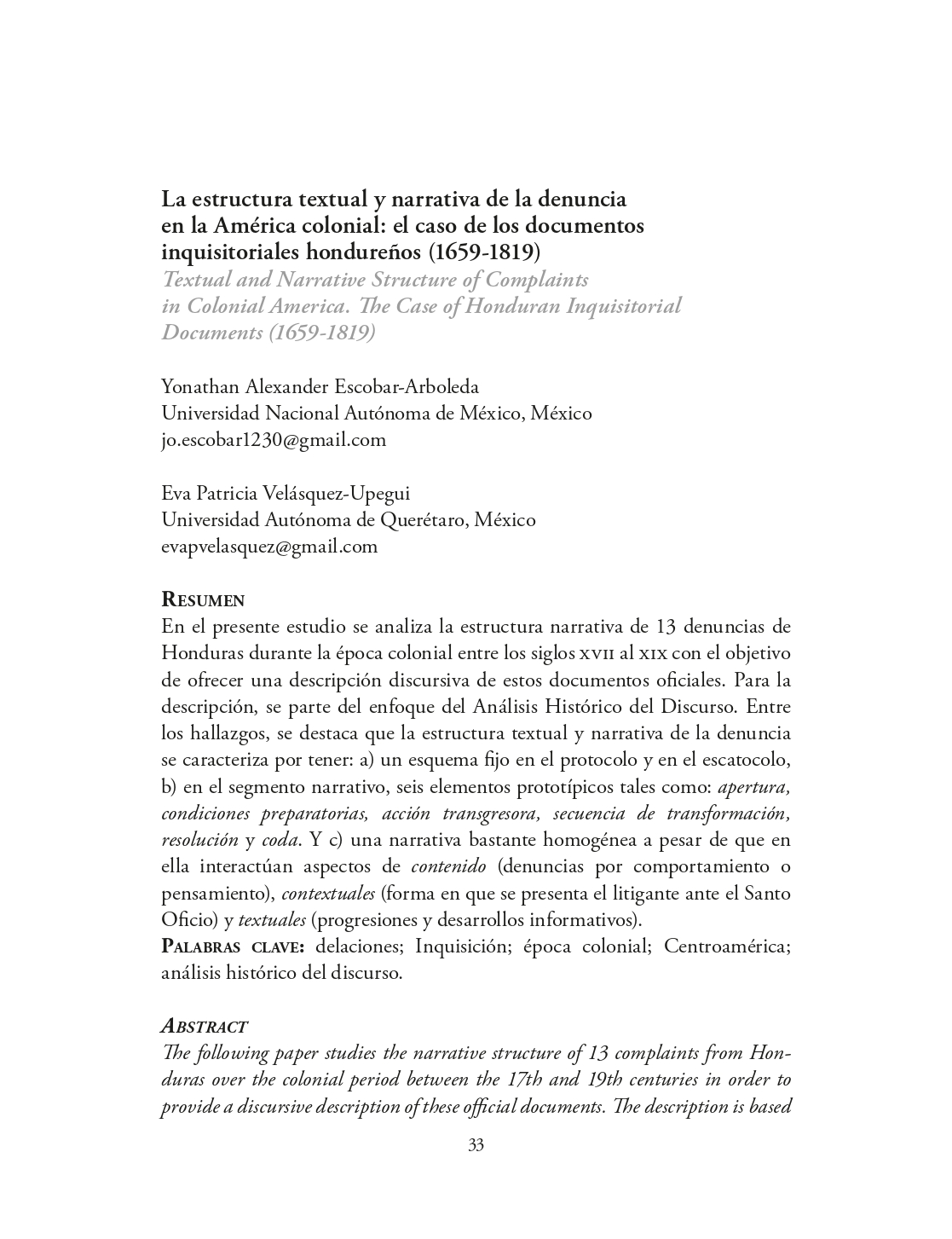Abstract
The following paper studies the narrative structure of 13 complaints from Honduras over the colonial period between the 17th and 19th centuries in order to provide a discursive description of these official documents. The description is based on the approach of the Historical Analysis of Discourse. Among the findings, it is noted that the textual and narrative structure of complaints is characterized by: a) a fixed scheme in the protocol and eschatocol; b) six prototypical components in the narrative segment, such as openness, preparatory conditions, transgressive action, transformation sequence, resolution, and coda; and c) a narrative that is quite homogenous despite having content (complaints by behavior or thought), contextual (the way in which the litigator presents himself before the Holy Office, and textual (informational progressions and developments) feature interactions.

This work is licensed under a Creative Commons Attribution 4.0 International License.
Copyright (c) 2021 Diseminaciones

